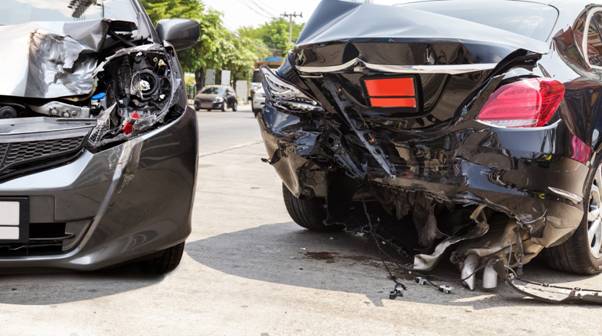The average driver will be in four car accidents during their lifetime. And while we all hope to avoid auto accidents, we should know what to do in the event something happens.
Once you have secured the scene and made sure that everyone is okay, you may be wondering what to do next? This article will walk you through the steps of filing an auto insurance claim as well as what to expect after the claim is filed.
What Is an Auto Insurance Claim?
A driver submits a car insurance claim to his or her insurance company after an accident. The claim is usually made over the phone. The claim is the driver’s way of requesting money for damages. Damages include physical harm to the car or personal injuries caused by the car accident.
What Information Do I Need?
Before you call your car insurance company, you’ll need to collect some information about the accident including information on the other drivers involved. First, ask each driver for their name, contact information (phone number), and license plate number. You can also write down a few notes about what each driver’s car looks like.
Next, document the location, time, and any other relevant details (weather, construction zone, etc.). If you can, take photos of any car damage.
If you call police officers to the scene of the accident, write down their names and badge numbers. Finally, get a copy of the accident report you can supply to the insurance company. The accident report, sometimes referred to as a police report, is a formal record of the incident written by a police officer.
If you did not call the police or file a police report at the time of the accident, you can still file one. Visit the local police station to get a formal accident report for your insurance provider.
Should I File a Claim?
You should file an auto insurance claim if your car is damaged or you are injured as a result of the accident. The claim can help you recover damages and pay for your car to be fixed. The claim can also help you cover medical bills for injuries.
But what if the accident was your fault? Whether you or the other driver was at fault, you should file a car insurance claim. Even if you are unsure who is at fault, you should file a claim.
If the other driver involved does not have car insurance, you can still file a claim. Your insurance may cover the losses instead.
In cases of theft, vandalism, or weather damage, a driver can still file a car insurance claim. Depending on your auto insurance policy, you may collect damages in these situations too.
Steps to File a Claim
So, you’ve collected the information you need and you’re ready to file. What are the next steps?
First, call your insurance provider or agent and give them the information you’ve collected. Ask them for their name and the claim number for your records. Also, ask your insurance how long you have to file the claim. Some policies have particular deadlines for claims and you don’t want to miss it!
Next, the insurance company will work with an insurance adjuster. An adjuster may call you to learn more about the accident. Have your notes available when the adjuster calls so that you can provide detailed facts. The adjuster will likely record your conversation and anything you say could help them determine fault.
The adjuster could ask for pictures of the damages, inspect the damages, or ask you to take your car to a certified repair shop for inspection. After that, you will wait to hear back from the adjuster. Once the adjuster has authorized payment, the process is complete.
Keep all records from the insurance claim just in case.
Do I Need an Attorney?
Hiring an attorney after a car accident can help you secure the money you need to fix your car or cover medical bills. Here are a few specific situations when you should hire an attorney.
1. Significant Damages
Are there serious damages to your car? Have you suffered serious injuries from the accident? That’s when you need a lawyer. Specifically, a car accident injury lawyer can help you navigate making a claim and getting the best outcome.
For minor accidents with minimal damage and no injuries, you may not need an attorney. However, it doesn’t hurt to get a consultation with one.
2. The Other Driver Was at Fault
If you are 100% certain the other driver was at fault for the accident, talk to a lawyer. You want to get the money you’re entitled to. If the accident involved multiple cars and drivers at fault, it’s still best to contact a lawyer.
3. You Were Offered a Low Settlement
Do not agree to a settlement without speaking to an attorney. There are often unexpected costs after car accidents from sustained injuries. An attorney will help you understand the damages and get a fair settlement to cover expenses now and in the future.
4. Wrongful Death Claim
If a loved one died in a car accident as the result of another driver’s negligence, you may have a wrongful death lawsuit. These claims are different from standard insurance claims and require legal representation. An attorney will walk you through the details of a wrongful death claim and the possible outcomes.
Always Be Prepared
No one anticipates being in a car accident but we all have to be prepared for the possibility. And part of being prepared is knowing how to file an auto insurance claim. Remember to collect as much information as possible at the time of the accident and try to file the claim in a timely manner.
If you have significant damages to your car or sustained injuries, contact an attorney. You may be entitled to a larger settlement.
For additional legal resources and references, check out our other blogs!





